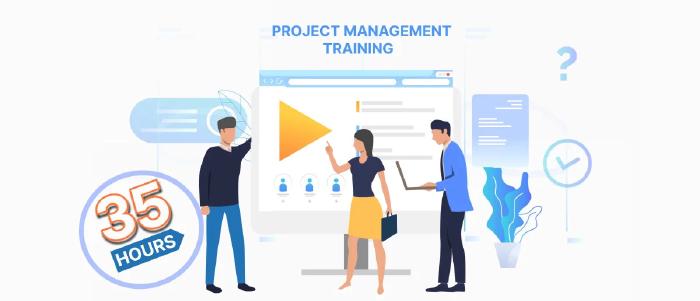
August 9 2023
4 min read

Apr
Healthcare project management involves ethically overseeing the planning, execution, and monitoring of research involving sensitive patient data and clinical trials, considering a few standard compliance regulations.
In this blog, I take you through some considerations, challenges, and technical ideas that might make or break a project if not implemented right, and some of the primary platforms and software that industry insiders must incorporate.
A healthcare project manager oversees and leads projects within healthcare organizations such as hospitals, clinics, or pharmaceutical companies. Their primary goal is to complete projects on time, on budget, and to stakeholders’ satisfaction.
The role of project managers in healthcare and clinical research includes the following:
Developing Plans: Healthcare project managers create detailed project plans that include timelines, budgets, resource allocation, and risk management plans.
Leading project teams: Healthcare project managers form and lead cross-functional teams comprised of clinicians, IT specialists, and other stakeholders to achieve project objectives.
Monitoring project progress: They closely monitor project progress to ensure that deadlines are met, budgets are effectively managed, and the project remains on track.
Managing project risks: They identify potential project risks and develop mitigation strategies.
Healthcare project management is subject to several roadblocks if regulatory concerns, patients’ data privacy, and related factors are not accurately deemed. Some common problems are as follows:
Studies have found that 89% of project managers feel that standard regulatory compliance is a severe challenge to clinical research project management. Non-compliance may have several detrimental effects.
Strict adherence to regulatory acts such as the Health Insurance Portability and Accountability Act (HIPAA), Food and Drug Administration (FDA), and Good Clinical Practice (GCP), to name a few, require detailed documentation and highly secure data storage, thus making project management a complex procedure.
Considerations such as informed consent for personal data usage, following project-specific protocols, and data accuracy can also present challenges. Studies show that 74% of clinical research managers visualize it as a significant bottleneck.
Healthcare project managers face further challenges navigating complex stakeholder relationships, including investigators and researchers, study coordinators, sponsors, and regulatory agencies.
Privacy concerns, such as lack of proper data security and even unintended leaks at times, can lead to enormous legal and financial consequences. Cyberattacks, too, are a threat with damaging effects and pose an added burden on project managers.
Some project management tools and software that can help you ace clinical projects:
Project management software
Several streamlining software tools such as Microsoft Project and Trello aid project managers in tracking tasks, timelines, budgets, and resources and provide real-time updates on project progress.
These help access projects in real-time and show graphs and tables on resources available and used up, helping plan progress and immediate redressal of errors, if any.
Data analytics tools
Platforms like Tableau and SAS can organize, group, and interpret complex data generated by healthcare and clinical research projects and categorize them into accessible sub-folders.
These ease up access while providing insights into patient outcomes, clinical trial results, and other key performance indicators such as the success of previous similar projects, etc.
Virtual collaboration platforms
Collaborative tools like Microsoft Teams and Slack facilitate quick internal communication and ease collaboration among geographically dispersed teams.
Virtual collaboration tools help information disseminate faster, supporting real-time project management from anywhere worldwide. This is essential in ensuring efficiency standards are met while delivering on-time results.
Clinical trial management systems (CTMS)
A professional software for tracking clinical trials, CTMS ensures the best compliance with regulatory requirements and provides real-time updates on the trial’s progress. This is crucial, especially when releasing a new life-saving drug or vaccine, and can have a lasting impact.
For instance, a project manager for a clinical trial could use this to track the project’s budget and timeline, data analytics tools to analyze patient outcomes and feedback, effectively manage virtual collaboration platforms to communicate with a remote team, basically grouping up management software, data analytics tools, and collaborative platforms under a single head.
Are you a project manager? Or looking to hire the right one? Watch out for these five signs!
Strong interpersonal and time-management skills, such as taking through cross-team collaborations heads on, keeping stakeholders in the loop, and completing the assigned projects with minimal errors on time
Precise knowledge to effectively use data analytics and develop project plans, tackle budget plans, and handle software with accuracy sans significant errors or data leaks. This is indispensable in handling tasks effectively.
Flexibility and adaptability to changing project needs and priorities, such as the ability to adjust plans and timelines based on changing regulatory or stakeholder requirements. Additionally, experience in clinical research and healthcare industries, e.g., understanding healthcare delivery systems and clinical trial processes.
Strong problem-solving and decision-making abilities, identification and figuring out project issues, and making sound decisions based on available data. This, alongside leadership and team management skills, like leading project teams and collaborating effectively with team members, are good check-offs.
Attention to detail and accuracy, such as ensuring accurate data collection and analysis and compliance with regulatory requirements.

August 9 2023
4 min read

July 18 2023
6 min read

June 19 2023
8 min read

June 12 2023
5 min read